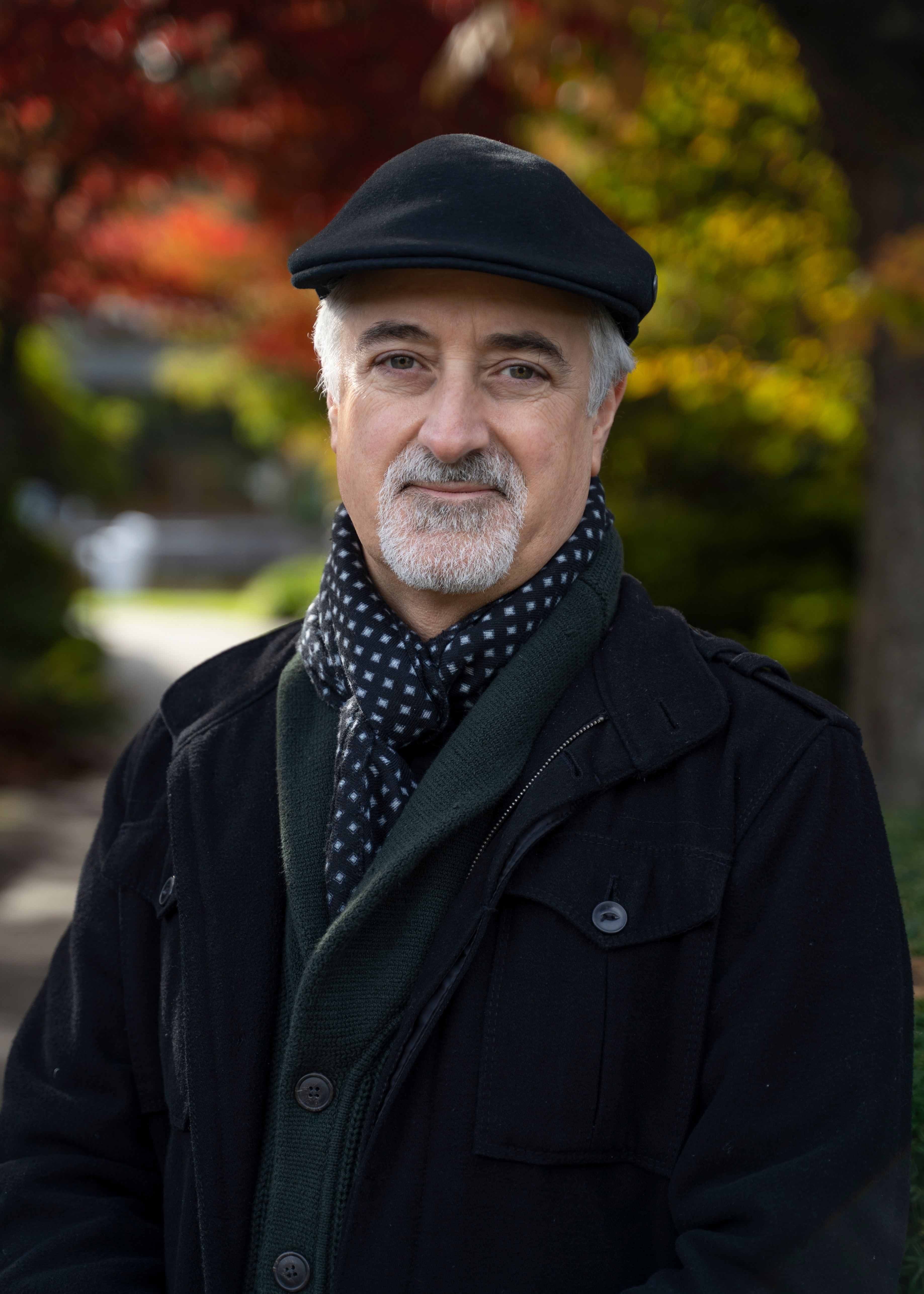Maxwell A. Cameron
Research Area
Education
Ph.D., University of California, Berkeley, 1989.
About
Maxwell A. Cameron specializes in comparative politics (Latin America), constitutionalism, democracy, and political ethics. He is the author or editor of a dozen academic books as well as over sixty peer-reviewed articles and book chapters. His books include: Democracy and Authoritarianism in Peru, The Peruvian Labyrinth, The Political Economy of North American Free Trade, To Walk Without Fear: The Global Movement to Ban Landmines, Latin America’s Left Turns: Politics, Policies and Trajectories of Change, Democracia en la Region Andina, New Institutions for Participatory Democracy in Latin America, The Making of NAFTA, Strong Constitutions, Political Institutions and Practical Wisdom and Challenges to Democracy in the Andes: Strongmen, Broken Constitutions, and Regimes in Crisis.
Cameron has held visiting positions in the Kellogg Institute for International Studies at Notre Dame University (1996) and at Yale University, where he was the Canadian Bicentennial Professor in 2005. In 2006 he served as political advisor to the OAS Electoral Observation Mission in Peru. He founded the “Andean Democracy Research Network” to monitor and report on the state of democracy in the Andean region which received funding from the Department of Foreign Affairs, the Martha Piper Fund, SSHRC, IDRC and the Ford Foundation. He participated in a research excellence cluster on the “global challenges to democracy.” He has served as the Director of the Centre for the Study of Democratic Institutions, in which capacity he co-created the Institute for Future Legislators. He has also served as Acting Director of the School of Public Policy and Global Affairs, and as a Trustee of the Board of the Peter Wall Institute for Advanced Studies. In 2011-12 he was a Peter Wall Institute for Advanced Studies Distinguished Scholar-in-Residence, and in 2013 he was awarded a UBC Killam Teaching Prize. He was elected Vice-President and President-Elect of the Latin American Studies Association (LASA), June 1, 2024-2025-2027. Cameron is a frequent commentator on politics in the media and has provided advice to policymakers on topics such as electoral reform, citizen engagement, and the defense of democracy in Latin America. In his spare time he enjoys kayaking in the Burrard Inlet, skiing on the local mountains, and diving in Howe Sound. He blogs about practical wisdom.
Professor Maxwell A. Cameron is jointly appointed with Political Science and the School of Public Policy and Global Affairs (SPPGA). In 2020 Cameron was named a Distinguished Fellow by the Canadian Association of Latin American and Caribbean Studies. He was the recipient of the 2022 Guillermo O’Donnell Democracy Award and Lectureship by the Latin American Studies Association for his work on democracy in Latin America.
Teaching
Research
Comparative Politics|Latin America
Publications
Recent Publications
Democracy and Foreign Policy in an Era of Uncertainty: Canada Among Nations. 2022. (Edited with David Gillies and David Carment). New York: Palgrave-Macmillan, 2023.
“A Tale of Two Crashes: Pandemic Politics in Peru and Brazil,” Latin American Perspectives. (with Paolo Sosa-Villagarcia, Veronica Hurtado and Marsilea Gombata) July 2023.
“¿Vive América Latina un segundo ciclo de política de izquierda?” (“Is Latin America Experiencing a Second Cycle of Leftist Politics?”) Política y Gobierno, (with Agustín Goenaga) Vol. 30, no. 1, 2023: 1-27.
“Improving the response to future pandemics requires an improved understanding of the role played by institutions, politics, organization, and governance.” PLOS Global Public Health Vol. 3, no. 1, 2023: e0001501. https://doi.org/10.1371/journal.pgph.0001501 (with Berman P, Gaurav S, Gotsadze G, Hasan MZ, Jenei K, et al.)
“Partisanship and Political Learning: Lessons from a Training Program for Politicians,” with Alessandra Ribeiro, Gerald Baier, Spencer McKay, Rebecca Monnerat, Catherine Ann Cameron, Journal of Political Science Education, Vol 19, no. 1, 2022. pp. 154-173. DOI: 10.1080/15512169.2022.2130070
Challenges to Democracy in the Andes: Strongmen, Broken Constitutions, and Regimes in Crisis. (Edited with Grace Jaramillo). Boulder, Colorado: Lynne Rienner Publishers, 2022.
“Endogenous Hybridity: Regime Change in Venezuela (1998-2020),” Canadian Journal of Latin American and Caribbean Studies, Vol. 47, no 1. 2022, pp. 140-159 (with Marsílea Gombata, 60/40 contribution). DOI: 10.1080/08263663.2022.2002666
“The Return of Oligarchy: Threats to Representative Democracy in Latin America,” Third World Quarterly, 2021. DOI: 10.1080/01436597.2020.1865794.
“Pathways to Inclusion in Latin America,” in Kapiszewski, Diana, Steve Levitsky, Deborah Yashar, eds. The Inclusionary Turn in Contemporary Latin America. Cambridge University Press, 2021, pp. 401-433.
“Modes of Oligarchic Rule in Latin America,” in Joe Foweraker, Oligarchy in the Americas: Comparing Oligarchic Rule in Latin America and the United States (chapter co-authored with Joe Foweraker). New York: Palgrave (Pivot series), 2021, pp. 33-58.
To download publications, click here or here.
Invited Presentations and Conferences (2024)
Moderator, Francisco Sagasti, Former President of Peru, LASA, Latin American Cultural Center, Pittsburgh (online), April 10, 2024.
Participant in Webinar “Roundtable on the Pandemic,” organized by Latin American Perspectives with contributors to their special issue on “COVID-19 Coronavirus: Pandemic Politics In Latin America” April 3, 2024.
Discussant in book presentation “Business Power and the State in the Central Andes,” sponsored by the Bolivia, Ecuador, and Peru sections of the Latin America Studies Association, via Zoom, January 25, 2024.
Awards
Guillermo O’Donnell Democracy Award and Lectureship, Latin American Studies Association, 2022.
Distinguished Fellow, Canadian Association of Latin American and Caribbean Studies, 2020.
UBC Killam Teaching Prize, 2012-2013.
Distinguished Scholar-in-Residence, Peter Wall Institute for Advanced Studies, 2011-2012
President, Vancouver Institute (2012-2013)
Honourary Professor, Universidad San Martin de Porres, Lima, Peru, 2012
Graduate Supervision
Cameron is currently supervising Paolo Sosa.
Graduate Courses
POLI332 Politics and Government of Latin America
A comparative examination of democracy and authoritarianism in Latin America: populism, corporatism, bureaucratic authoritarianism, transitions from authoritarianism, and contemporary debates on the quality and diversity of democratic institutions.
POLI511 Core Seminar in Comparative Government and Politics
